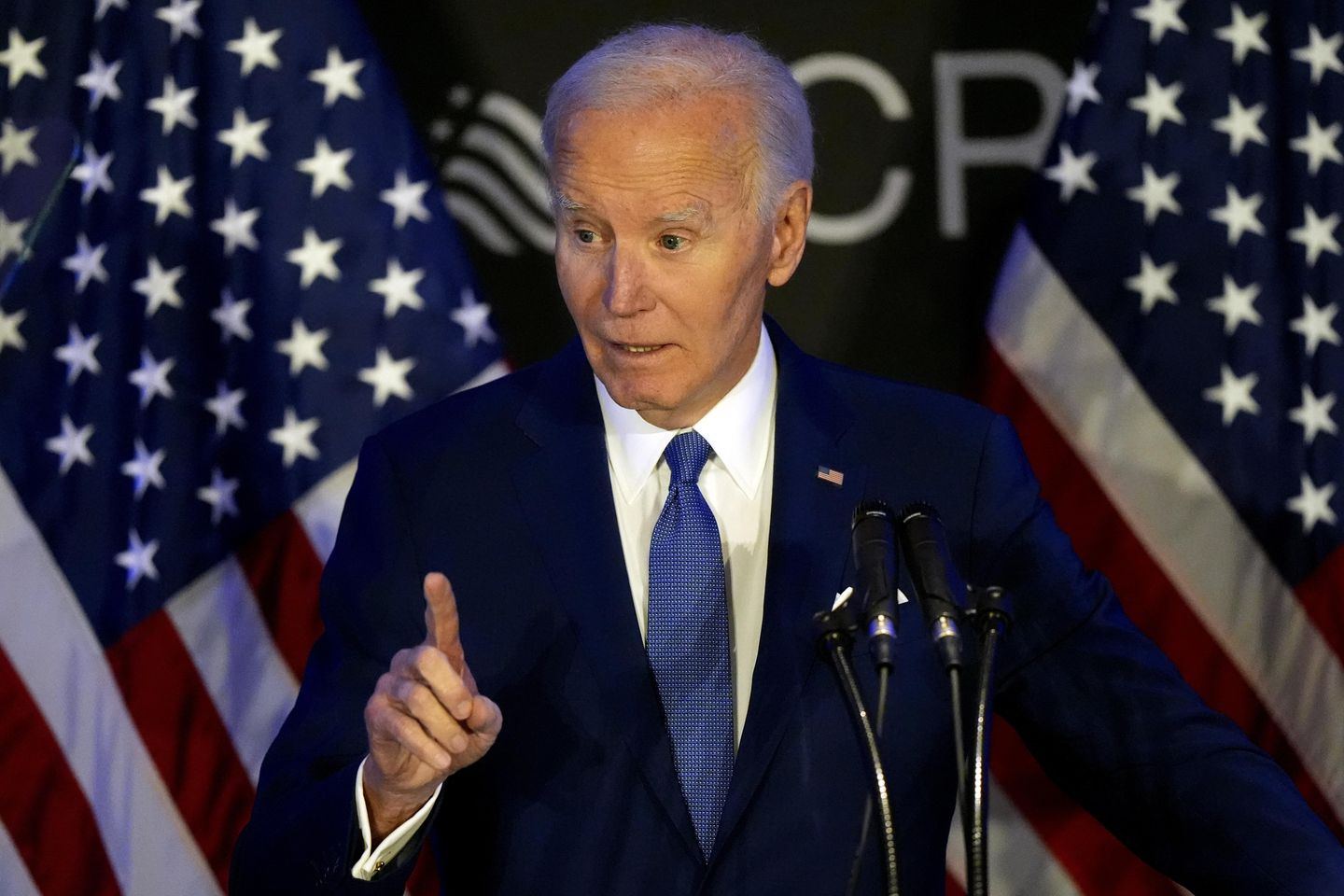
Republicans, in their first 100 days with a bicameral majority in Congress, have repealed seven of President Biden’s regulations, mostly energy-related rules that they say burden producers and raise prices for consumers.
The nixed rules include:
• An Environmental Protection Agency rule imposing a methane emission fee on oil and natural gas facilities that Republicans say has stymied domestic energy production.
• A requirement that new oil and gas leaseholders on the outer continental shelf submit an archaeological report before they can begin offshore drilling production.
• Two Energy Department rules requiring higher energy efficiency standards for gas-fired hot water heaters and walk-in coolers and freezers.
“House Republicans are leveraging the Congressional Review Act to support President Trump in undoing the damage of the Biden Administration’s war on American energy,” House Speaker Mike Johnson, Louisiana Republican, said after the chamber’s action on one of the rule roll-backs.
Republicans also canceled a few cryptocurrency and financial regulations promulgated under Mr. Biden.
And the GOP-run Congress is on track to nix a few more Biden-era regulations before their window for action closes. Lawmakers have a time limit in which to cancel the executive branch’s rules using expedited procedures under the Congressional Review Act.
The deadline, which varies based on when the rule was finalized, is coming due next month for most of Mr. Biden’s regulations. After that point, the CRA measures to undo Biden rules can still get votes but will lose their privileged status that allows for them to be fast-tracked in the Senate and passed without the threat of a filibuster.
Majority Leader Steve Scalise, a Louisiana Republican, released a list in February of 10 Biden administration regulations the GOP would prioritize for repeal.
The House and Senate have passed joint resolutions to axe five of the regulations from Mr. Scalise’s priority list and two that were not on it.
Another three CRA measures, including two from Mr. Scalise’s target list, have passed the House but still need to clear the Senate.
President Trump has signed three CRA measures into law, while the other four that passed both chambers have yet to be formally transmitted to him.
Two regulations impacting the oil and gas industry were the first to be signed into law in March.
One nixed the EPA’s methane emission fee. The fee, enacted through the Democrats’ Inflation Reduction Act to encourage the oil and gas industry to curb emissions of greenhouse gas, started at $900 per metric ton of reported methane emissions in 2024 and would have cranked up to $1,500 per metric ton in 2026.
Republicans are hoping to repeal the underlying law as part of their party-line budget reconciliation bill, since getting rid of the rule does not guarantee that a future administration would not resurrect the fee.
Mr. Trump also signed into law the measure repealing the requirement for an archaeological report before drilling on the outer continental shelf.
The third CRA measure to become law benefits the crypto industry, which Mr. Trump courted in his 2024 presidential campaign.
The joint resolution repeals an IRS rule requiring decentralized finance (DeFi) exchanges to be treated as brokers that must track and report user activity.
Crypto industry leaders said it was impossible to comply with the rule because DeFi exchanges don’t act as intermediaries, so they can’t see who their users are.
Four CRA measures that have cleared both chambers of Congress still need to be sent to the president for his signature.
They include repeal of the two Energy Department rules on gas-fired hot water heaters and walk-in coolers and freezers.
House Republicans also passed CRA measures repealing consumption limits on commercial refrigerators and freezers and certification, labeling and enforcement requirements for 20 products, including dishwashers, washing machines, central AC and heat pumps.
Those two resolutions need to clear the Senate before going to Mr. Trump to sign. Congressional Republicans are likely waiting to transmit all four appliance-related measures together.
The president also has yet to receive CRA measures repealing two Consumer Financial Protection Bureau rules. One would scrap new regulations placed on digital payment applications that facilitate more than 50 million consumer transactions per year, like Venmo and PayPal. The other would overturn a rule capping overdraft fees that banks can charge.
The three House-passed CRA resolutions awaiting Senate action will be voted on before their privilege windows expire in May, a Senate aide told The Washington Times.
That includes the two aforementioned appliance-related measures and legislation to nix an EPA rule setting emission standards for rubber tire manufacturing.
Two CRA measures from Mr. Scalise’s target list have yet to be taken up in either chamber, including legislation to cancel Interior Department regulations on equipment used in high-temperature offshore drilling environments.
Mr. Scalise had put at the top of his hit list an EPA rule granting California waivers to preempt federal car and truck air emissions standards. But the Senate parliamentarian ruled that California’s Clean Air Act waivers are not subject to the Congressional Review Act because of a law passed roughly 60 years ago granting California the power to regulate its own pollution.












